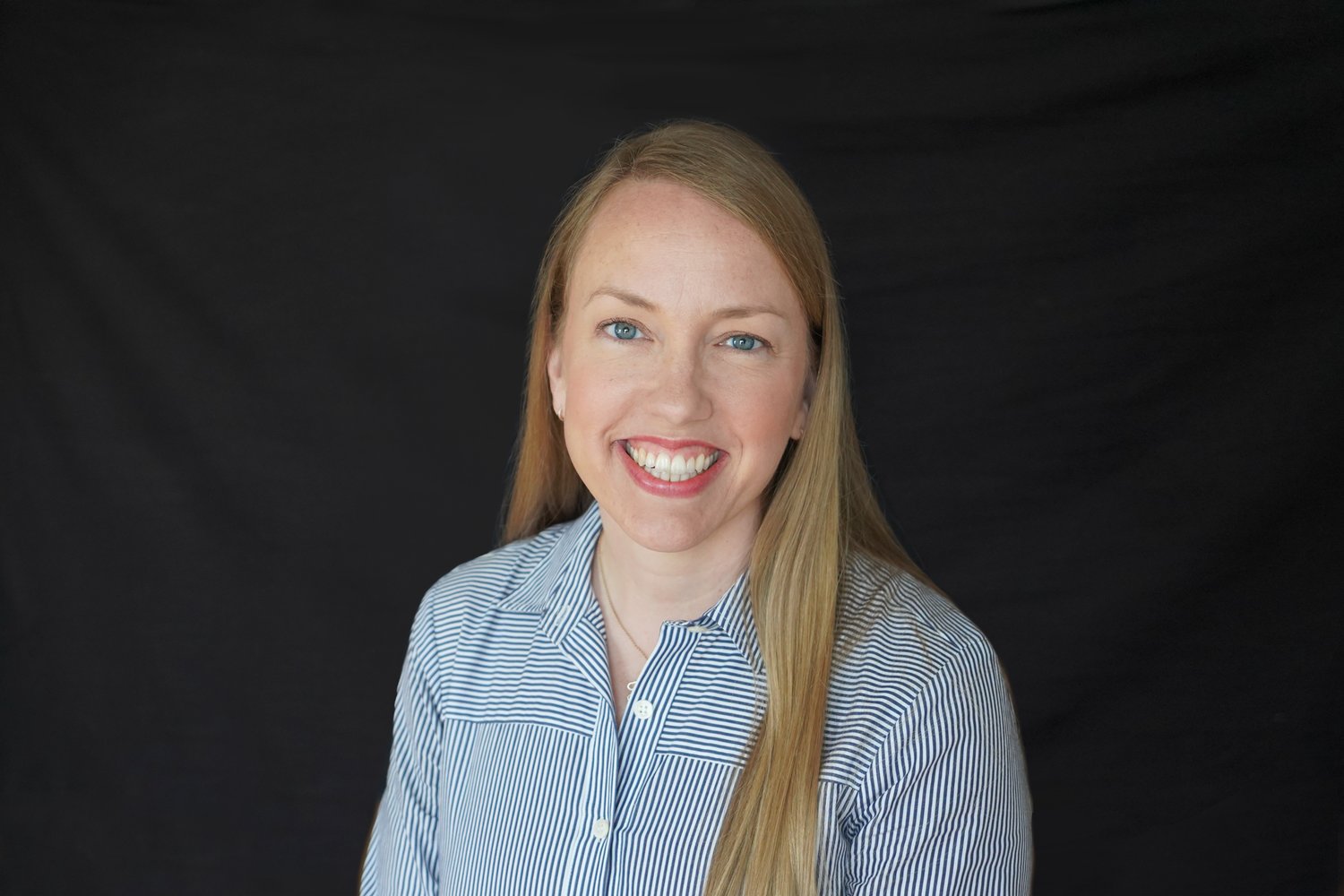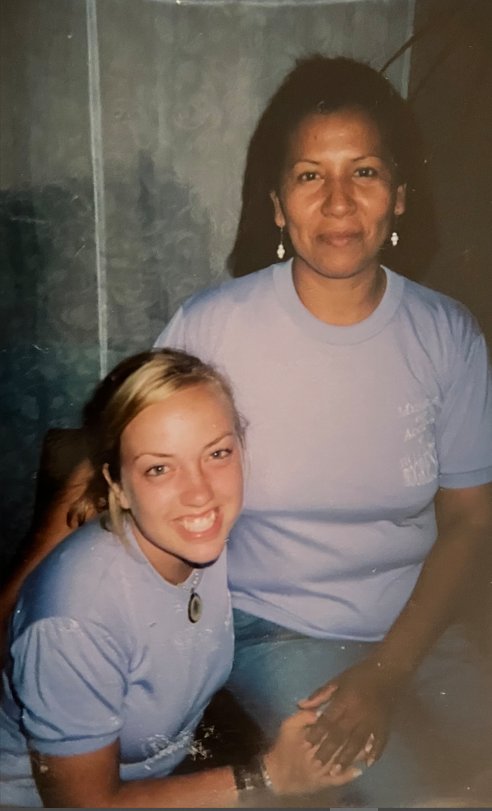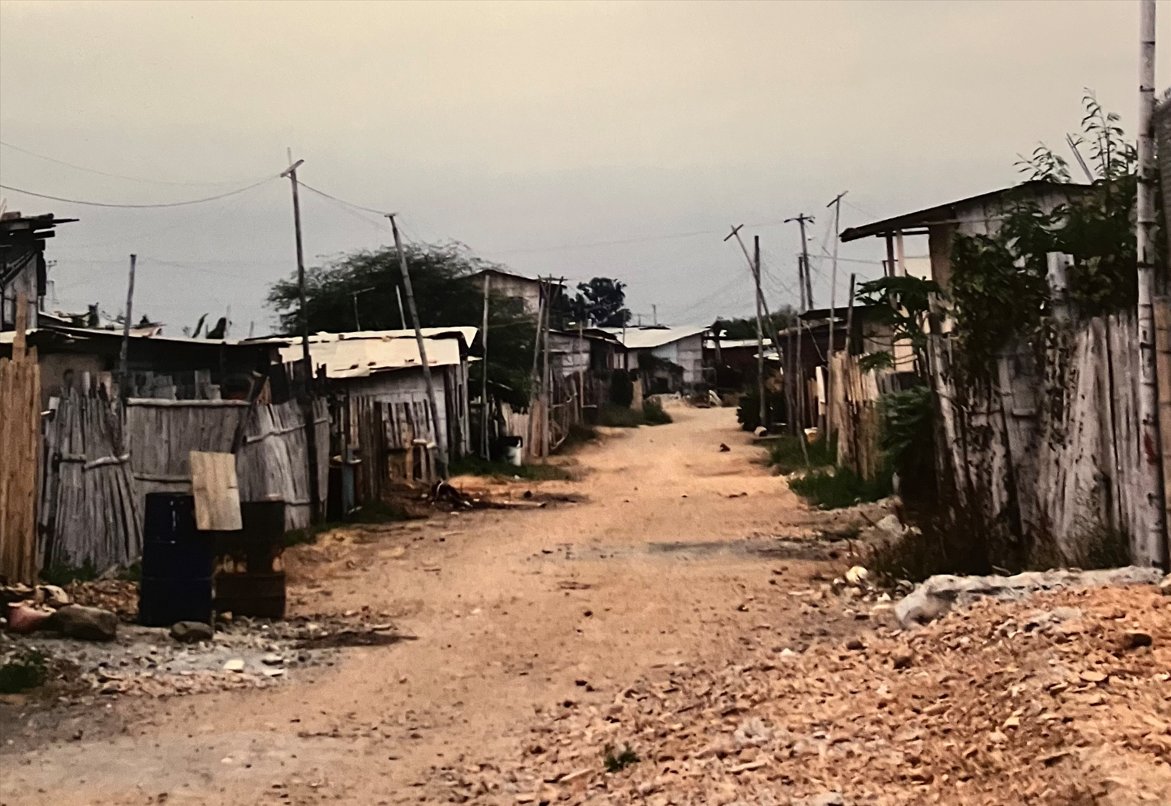Encounter at Catholic Charities — Finding joy amidst the struggle
How one legal practitioner’s experience abroad continues to inform immigration work two decades later

SCROLL THE ARROWS to see more photos.
She handed me her passport from across my desk and I smiled as I read the cover. She was the first Ecuadorian I had encountered while working at Catholic Charities Family Immigration Services. When I opened the passport, I could no longer contain my excitement. Having spent a year with a postgraduate volunteer program, I exclaimed, “Durán!? I lived in Durán!”
Thousands of miles from her home, we immediately connected over a town and a people we both loved.
Favorite soccer team? Together we agreed: “Barcelona!” (a professional club team in the coastal city of Guayaquil). Of course, I was a Barcelonista! Although, I explained, I had only ever attended one match, which unfortunately ended prematurely when a questionable call on the field prompted angry fans to hurl beer bottles at the referees.
Favorite Ecuadorian dish? Her husband spoke up before I could respond: llapingachos. I could still taste the fried potato pancakes, oozing with cheese and drenched in peanut sauce; and I remembered the women who had first served me this iconic recipe. I was with a group of fellow university students, and we had been invited to a fundraiser to support survivors of domestic violence hosted by a newly-established women’s group in the community. The cooking was only bested by the women’s spirit and passion for justice.
We debated our favorite Ecuadorian slang (bacán, “awesome”, chévere, “cool”) and I shared stories of my fellow volunteers who I lovingly referred to as my ñaños, siblings, in Quichua — one of the indigenous languages still spoken in Ecuador.
We reminisced. The music and dancing — salsa, merengue, reggaeton. The fiestas. The people. The culture. The hospitality. The community. The beauty of it all.
Still, an unspoken sadness crept into our conversation.
They recognized the names of the neighborhoods in Durán where I had lived and worked: El Arbolito. La Puntilla. El 28 de Agosto. And I was familiar with their daughter’s neighborhood in the adjoining city of Guayaquil as well. Their daughter — who they have not seen for over 25 years. Their daughter — the reason they have come to meet with me. Their daughter — the source of both their hope and their tears.
I realized that although it had been nearly two decades, my ñaños and I had lived in Ecuador more recently than my clients. I had even returned for countless visits — sometimes multiple trips in a year — all while this family had been kept apart. As I thought about our commonality, our differences were stark. I could come and go freely, but they were separated due to immigration laws and policies; making their journey impossible to navigate alone.
This is the reality of our work in Family Immigration Services. We struggle to reunite families daily and in doing so we often make connections capable of transcending time, distance, language and culture. Still, with these connections come difficult stories. There are heartbreaking challenges which far too many immigrant families must confront. We journey as far as we can with our clients who carry these unimaginable burdens, and maybe deep down, that’s what makes each encounter so powerful. We know it’s not just food and fútbol. It’s faith and family and so much more. It’s the struggle not just to reunite, but to remain united despite the time and distance.
Marissa Flores Madden, is a Department of Justice Accredited Representative in the Family Immigration Services program at Catholic Charities of Central and Northern Missouri and the creator of the eight-episode Mercy Moments podcast series (cccnmo.diojeffcity.org/mercy-moments) Before moving to Missouri in 2021, she taught Catholic Social Teaching (CST) to high school seniors and worked in campus ministry leading immersion retreats to Ecuador and the U.S./Mexico border. Reflecting on these experiences through the lens of CST continues to inspire her work with immigrants today.
Comments
Other items that may interest you
Services
The Catholic
Missourian
2207 W. Main St.
Jefferson City MO 65109-0914
(573) 635-9127
editor@diojeffcity.org








